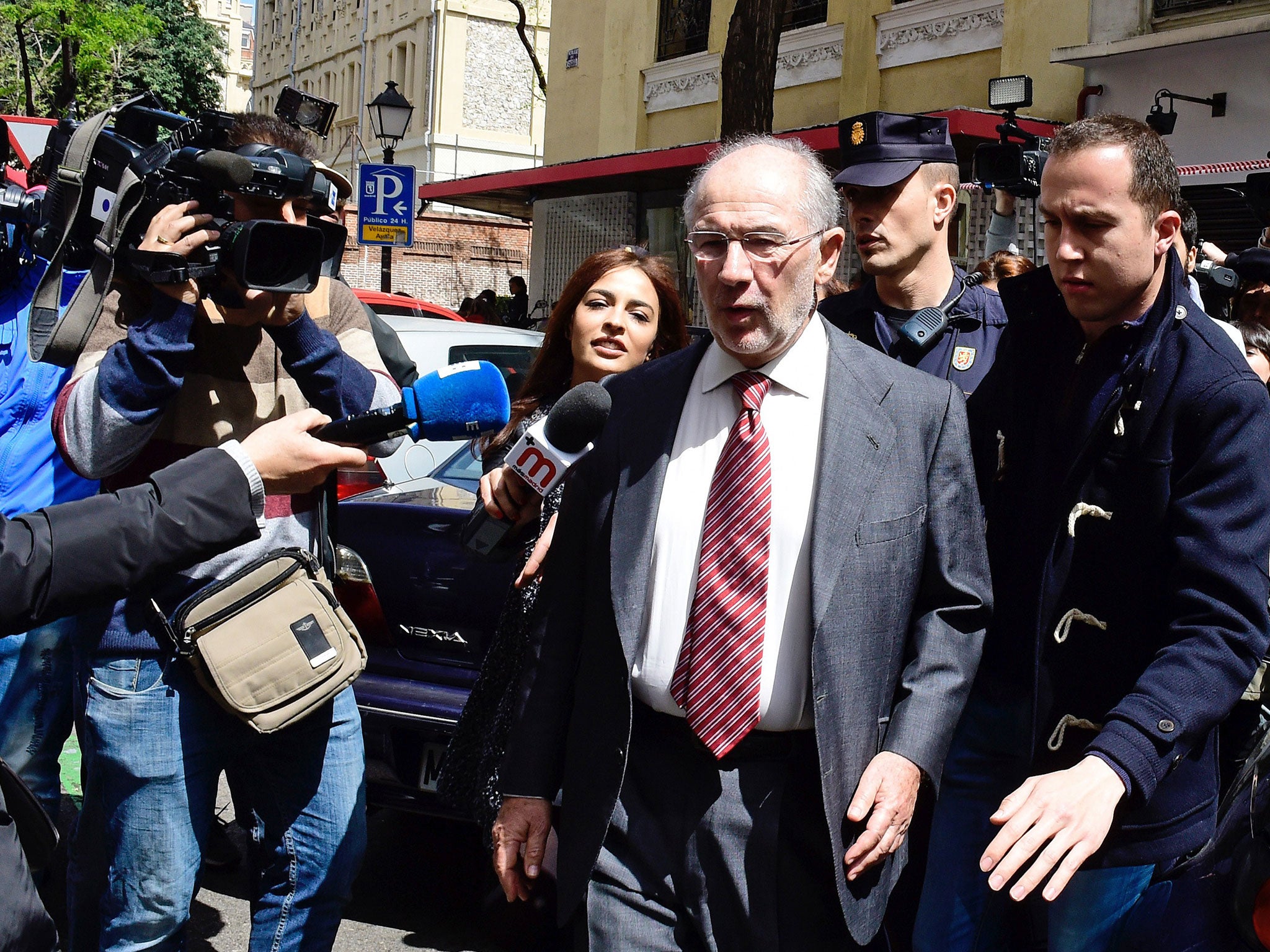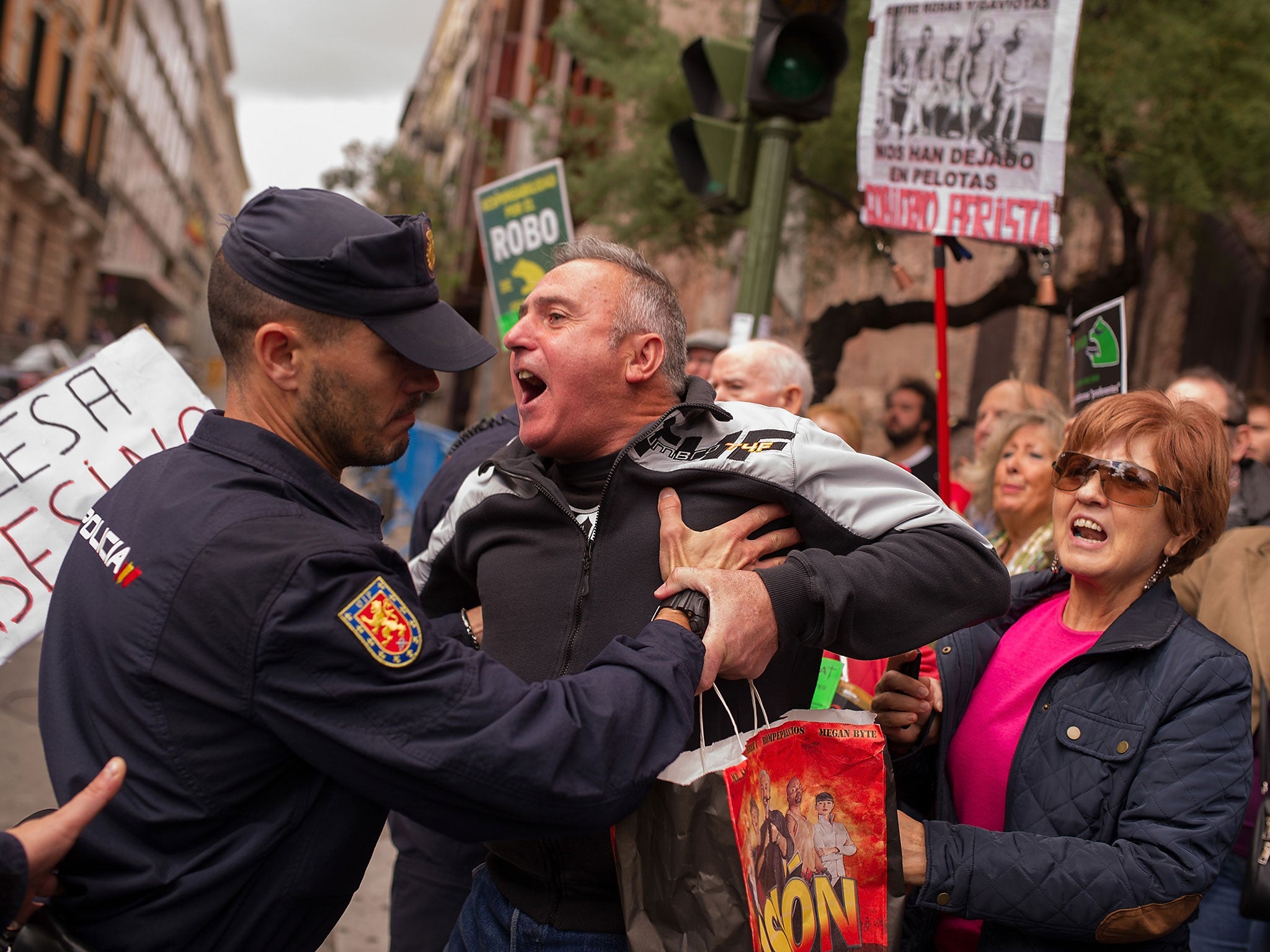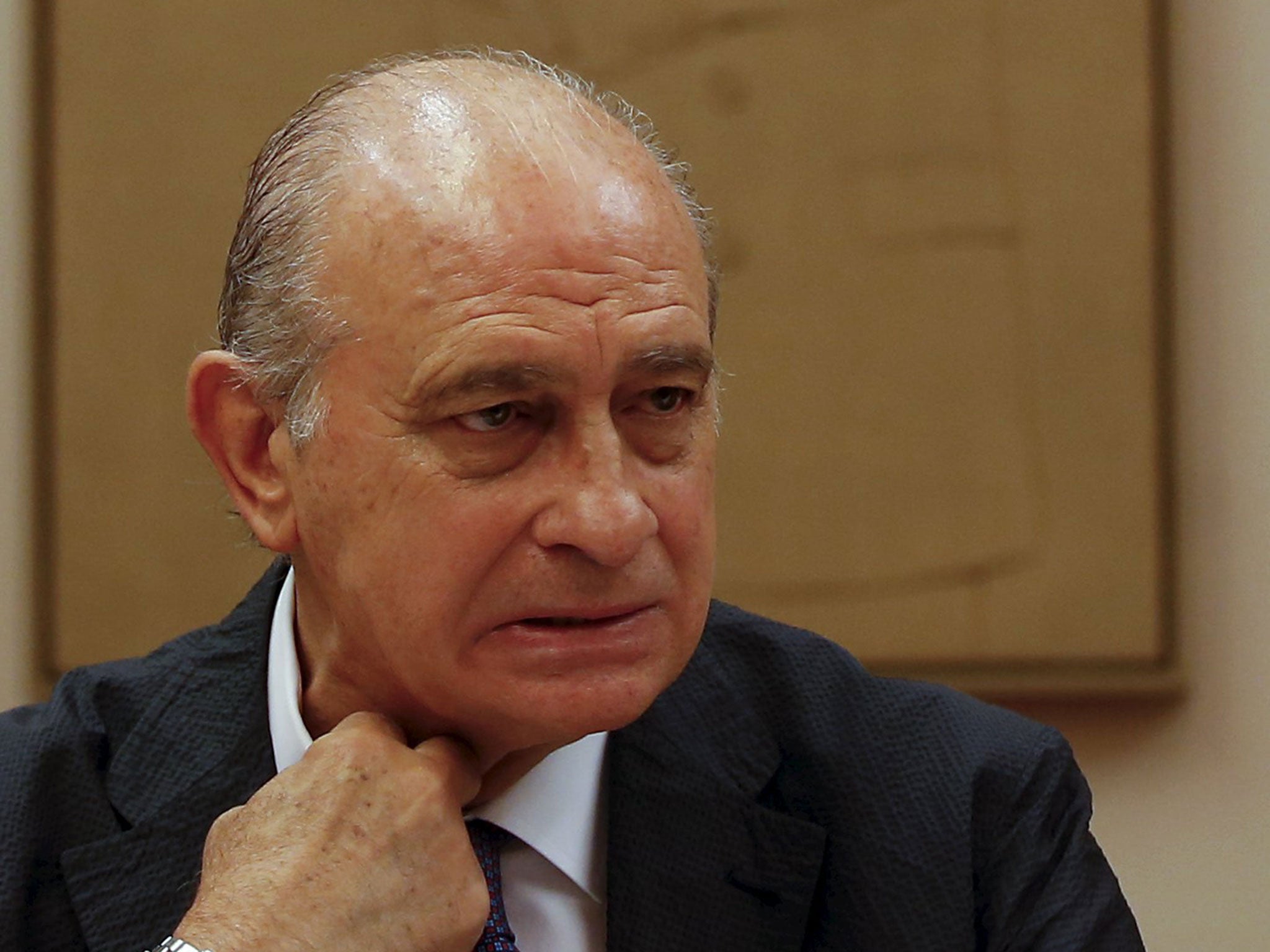Spaniards may have to go to the polls in November holding their noses
Voters may well back Rajoy for economic reasons, but he must face up to corruption

Rodrigo Rato is a man with plenty on his mind. Spain's former deputy prime minister and the one-time head of the International Monetary Fund is the subject of not one, but three corruption investigations.
Not only is he being probed over money laundering; his time as head of the nationalised Bankia, which under his watch almost went bankrupt, is also under scrutiny. If that were not enough, there is yet another inquiry into the alleged misuse of so-called “black credit cards” by senior executives at the taxpayer-owned bank, spending that was handled separately from any other form of expenses.
Mr Rato, as it happens, ran up almost €100,000 (£70,000) on his card, buying 519 different items. He also made 16 cash withdrawals of more than €1,000 – all this on top of his salary. He denies any wrongdoing.
However, it doesn’t take a highly trained political wonk to work out that such allegations might be something close to toxic for his former colleagues in the governing centre-right Partido Popular (PP) – he was a leading member of the party for years – especially with a razor-tight general election expected in just three months.
Or so you would think. On Friday, Spain’s Interior Minister, Jorge Fernández Díaz, was hauled before Parliament to explain why it was that he had met Mr Rato on 29 July. The meeting came to light only after the centre-right newspaper El Mundo published details of it. Mr Fernández Díaz insists that they did not discuss the investigations pending against Mr Rato.
So, what had they discussed, the parliamentary commission, not unreasonably, wanted to know. Mr Rato has been the subject of abuse on social media since he was very publicly detained in April, and apparently he wanted to discuss his personal protection detail. However, Members of the parliamentary panel were seemingly baffled that Mr Fernández Díaz should personally meet his troubled former colleague. As a former senior minister, it is right that Mr Rato has bodyguards, and perhaps the threat has increased since the allegations surrounding his Mr Rato’s affairs came to light, but it is odd that a senior cabinet minister should personally take charge of these matters.

Mr Fernández Díaz’s response was as enlightening as it was predictable. It was his duty, he said, as Spain’s top security official, to agree to Mr Rato’s request for the meeting.
It smacks of the old-boy network and is one of the reasons ordinary Spaniards are so utterly hacked off with their politicians.
In May, the PP was battered in local, regional and municipal elections, voters punishing it not just for the inquiries into Mr Rato’s affairs, but for a series of other investigations as well.
The party lost control in Madrid and they lost Valencia, two cities that provide the backbone of PP support. In Valencia, the new mayor has launched a wide-ranging corruption investigation, which follows coming as it does after several local scandals involving PP officials.
In another national case, the PP’s former treasurer, Luis Bárcenas, is awaiting trial for allegedly running a slush fund for the benefit of leading PP figures.
When reports of the alleged slush fund first appeared, again in El Mundo, a series of text messages sent to Mr Bárcenas was made public. One of them said: “Luis, I understand. Stay strong. I’ll call you tomorrow. A hug.” It came from Mariano Rajoy, the Prime Minister, who is accused by Mr Bárcenas of being a beneficiary. Mr Rajoy denies this, and Mr Bárcenas also denies any wrongdoing.
In many countries, leading political figures would not have survived even the whiff of such scandal. Indeed the opposition Socialists appear to be trying to make the most of the situation, with Socialist spokesman Antonio Trevin accusing the government of not taking the fight against corruption seriously.
However, Mr Rajoy will lead the PP into November’s general election. And he may yet win. Despite the allegations of corruption that have circled the PP for several years now, recent polls indicate that he could well end up being returned as Prime Minister.
The PP has recovered since May’s elections, and most polls have the party emerging as the largest after the general election, albeit perhaps without an overall majority.
As well as presiding over a party that has been at the centre of several graft scandals, on In Mr Rajoy’s favour, watch the Spanish economy has recovered from its nadir in 2008 to 2011 when the collapse of the debt-binged construction sector led to the banking system being bailed out and the country being mentioned in the same breath as Greece.

Mr Rajoy came to power in 2011, bringing with him Brussels-backed, eye-watering austerity which has to led to real suffering. But it has also helped the economy to rebound and now the Spanish government boasts one of the strongest recoveries in Europe. Last Earlier this week, the IMF praised Spain’s economic reforms and, like the government, predicted growth of more than 3 per cent this year. If it had not already been invented for David Cameron and George Osborne, sticking to “the long-term economic plan” could just as easily have been Mr Rajoy’s mantra.
Mr Rajoy also faces divided opponents. The PP’s long-term rival for power, the leftist PSOE, was in charge when the economic music stopped in 2008 and it is blamed by many Spaniards for the crippling recession.
Further to the left (or not, depending on when he speaks) is Pablo Iglesias’s Podemos. In January, Podemos packed as many as a million supporters into Madrid’s central Puerta del Sol, where Mr Iglesias, an iconoclastic political academic, told Mr Rajoy that the clock was ticking on his leadership.
The rally took place a week after Syriza swept to power in Greece, and many of the flags being waved in Solwere Greek. Mr Iglesias shared a stage with Alexis Tsipras during the Greek campaign but the original firebrand message has since been diluted, and gone is much of the anti-Brussels, anti-austerity rhetoric as Spaniards now look across to the other side of the Mediterranean in horror.
To those on the hard left, Mr Iglesias has can be seen as abandoned his principles; in the centre he is seen as flip-flopping; and on the right he will never win support anyway. And while the right-wing press has hammed it up, Podemos has not been free of the suggestion of corruption either.
That leaves Ciudadanos, a centrist Catalan party that was thrust into the national spotlight earlier in the year as a PP alternative, with a moderate economic policy but without the political baggage. The party’s star appears, according to the latest polls at least, to be fading, and some expect that it may join Mr Rajoy in some sort of centre-right coalition.
If ever James Carville’s maxim that it’s “the economy, stupid” that wins elections is to be tested, it is in Spain in November. As in the UK, voters may well hold their noses and back the party that has given them an economic recovery. But if Mr Rajoy returns as PM, as well as the economy, he will have to address the allegations of corruption that has dogged his party – and get rid of the rats.

Join our commenting forum
Join thought-provoking conversations, follow other Independent readers and see their replies